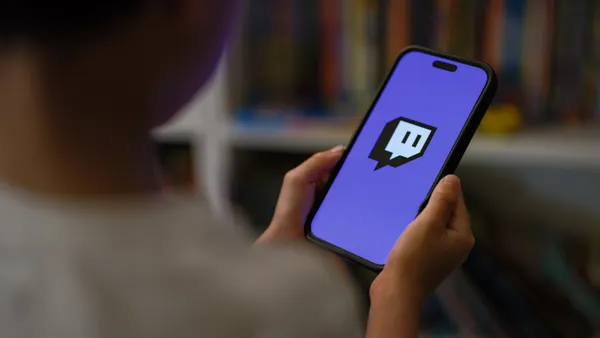Dive Brief:
- The number of U.S. adults that recall seeing a Payless ad over the past two weeks grew from 12% on Nov. 28 to 18% as of Dec. 3, and those talking about Payless increased from 7% to 9%, according to new data from YouGov Plan & Track shared with Marketing Dive. Nov. 28 was the day that word started getting out about Payless creating a fake luxury store called Palessi, as well as a fake website and Instagram account, where influencers were invited to bid on the brand's shoes thinking they were luxury items.
- YouGov asked consumers if they've heard something negative or positive about Payless in the past two weeks. Consumers aged 35-49 gave Payless a positive "buzz" score of 5 on Nov. 28, which has now increased to 20. The buzz score among people aged 18-34 decreased from 12 to 0 during the same period. The impression of Payless has grown more positive with older consumers, while dropping for younger age groups.
- The analysis also found that 74% of consumers age 18-34 like to get advice before buying new things, compared to 70% of those 35-49. Twenty-four percent of younger shoppers say celebrity endorsements affect their purchasing decisions, compared to 19% of older shoppers.
Dive Insight:
The Palessi stunt seems to be benefiting Payless when it comes to ad recall and brand perception. But, there appears to be an age gap in how the stunt was perceived. Payless' attempt to make a cultural statement, challenge "image-conscious fashion influencer culture" and revamp its reputation beyond its discount-store image may be alienating younger consumers, who are a key consumer base for the brand.
Millennials may have seen the prank as knocking their value-conscious ways and poking fun at how they've embraced influencers, whom fashion brands often work with to make more authentic connections with younger consumers. When they shop, millennials are more likely than the general consumer to look for deals, buy private-label brands, try lower-priced brands and use coupons, according to eMarketer. It appears that Payless may have missed an opportunity to further engage with these consumers and create an emotional connection.
Marketing stunts are becoming more trendy with brands, but stunts with a purpose are more likely to resonate with younger consumers. A notable example is Burger King's "Whopper Neutrality" video that used its restaurant to highlight the possible effects of the repeal of Net Neutrality.
Younger consumers also expect brands to stand for something important or support important causes or social issues. More than half of Gen Zers say knowing that a brand is socially conscious influences their purchases, per MNI Targeted Media research. Consumers, especially millennials, are more often holding brands accountable for any perceived missteps and aren't shy about calling them out on social media.











